What is Windows Web Experience Pack and How to Update It?
Downloading and installing Windows operating system updates is a tedious and time-consuming operation. Microsoft has opted to try a new method for distributing updates independent of the operating system.
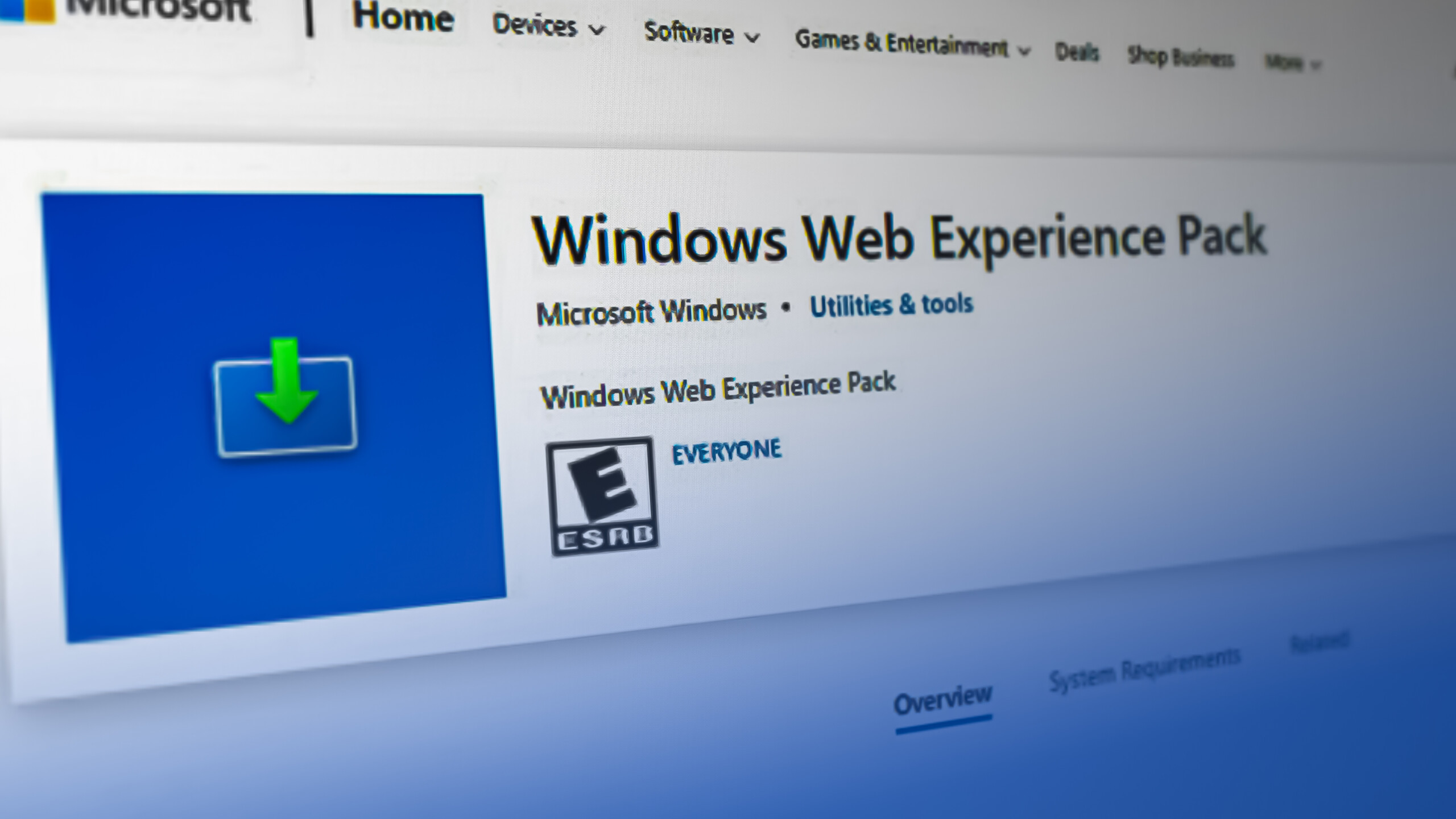
This is how the Windows Web Experience Pack came to be.
This new infrastructure using Windows Store (instead of Windows Update) facilitates the installation of these updates and substantially reduces the installation time.
Note: Due to their independence from the operating system, these upgrades provide more freedom for experimentation.
In the past several years, Microsoft has released a number of these services. First came Feature Experience packs for insider builds of Windows 10, then Online Experience Packs before we finally got Web Experience Packs. Now, we are seeing the same pattern for Windows 11.
Windows 11 will now push frequent and smaller updates in the form of Feature, Web, and Online service experience packs in order to give faster upgrades for certain features and settings.
Windows Web Experience Pack on Windows 11
These experience packs do not completely redesign the PC’s functions, but instead, update key settings.
Note: Microsoft utilizes the feature experience pack to offer a series of upgrades focused on Windows applications that are typically omitted from major releases. It can provide significant enhancements to numerous Windows components. In this way, the online service pack differs from the feature pack; its servicing regions are limited.
Unlike the feature pack, it concentrates on providing updates and enhancements for certain areas alone. Currently, the online service pack simply includes the new “Your Microsoft account” access point in the settings app. Over time, it may extend to encompass more areas.
The Mystery around the Web Experience Pack
Microsoft now offers this information for both packs. Curiously, though, Microsoft has said nothing about the pack-in issue. It should be obvious by now that its aim is to give upgrades to Windows programs and experiences.
However, the nature of this feature and its experience are unknown. At this time, it is merely conjectured that it will deliver enhancements to key web components used by Microsoft Store applications.
We only know for certain that it is responsible for Windows’ widgets. The Web Experience bundle is compatible with both Windows 10 and Windows 11.
How to Update & Maintain the Web Experience Pack
Now that we’ve established that the Windows Web Experience bundle is responsible for delivering Windows updates, let’s move on to upgrading it.
If you are unable to locate specific Windows features or are experiencing troubles with a widget, upgrading the Web Experience bundle could be of assistance.
Microsoft may not have revealed many details on the Windows Web Experience bundle. However, we are aware that we must maintain it up-to-date to ensure that all new Windows features function properly.
By updating this component, you will always have access to the most recent Windows features.
1. Update the Web Experience Pack Automatically
You do not need to constantly update the Windows Web Experience bundle to have access to the most recent features. Enabling automatic updates for all Microsoft Store applications enables automatic updates for the web experience bundle.
Since this new component is handled indirectly by the Windows Store, all you need to do is access the App Settings and ensure that App Updates are enabled:
Here’s how to do this:
- Press Windows key + R to open up a Run dialog box.
- Next, type ‘ms-windows-store:’ and press Ctrl + Shift + Enter to open the Microsoft Store with admin access.
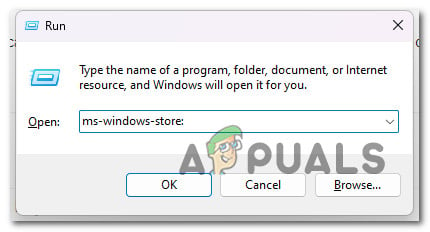
Open up the Microsoft Store - At the User Account Control (UAC), click Yes to grant admin access.
- From the main Microsoft Store menu, click on your account icon (top-right corner of the screen).
- From the context menu that just appeared, click on App Settings.
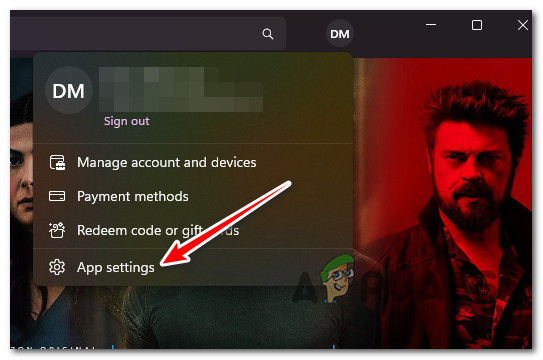
Access the App Settings menu - Inside the App settings menu, make sure the App updates toggle is enabled.
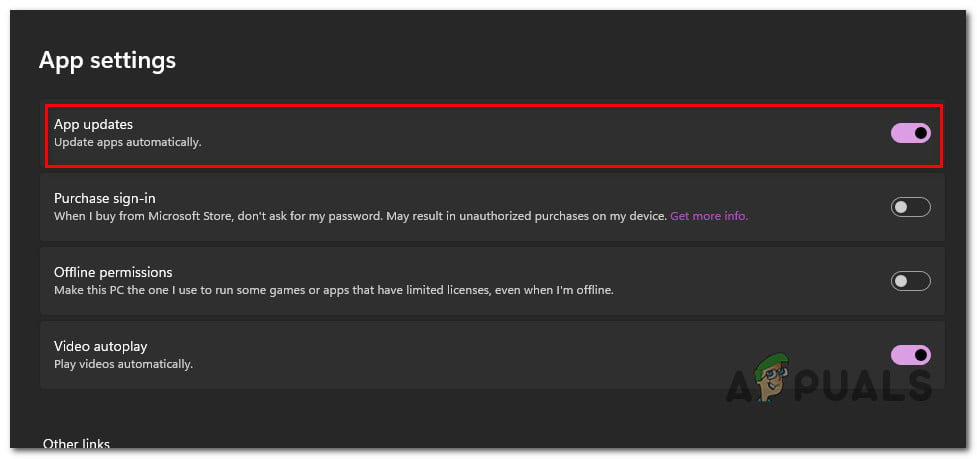
Enable App updates for Microsoft Store Note: If you are unable to modify this setting on your work computer and you are part of a shared network, your organization may have disabled this option. In this case, you can either contact the network administrator or go for the manual way as described previously.
- Once you’ve enabled app updates, a simple restart should trigger the updating of the Web Experience Pack if a new version is available.
2. Update the Web Experience Pack Manually
If you’re on Windows 11, the Windows Web Experience pack should be already installed on your PC. If you’ve stopped this update purposefully or you’ve postponed it, there’s a way to install it immediately.
Here’s a quick guide on using the Microsoft Store to manually update the Web Experience Pack:
- Press Windows key + R to open up a Run dialog box.
- Next, type ‘ms-windows-store:’ and press Ctrl + Shift + Enter to open the Microsoft Store with admin access.

Open up the Microsoft Store - At the User Account Control (UAC), click Yes to grant admin access.
- Inside the Microsoft Store, click on the Library icon from the bottom-left section of the screen.
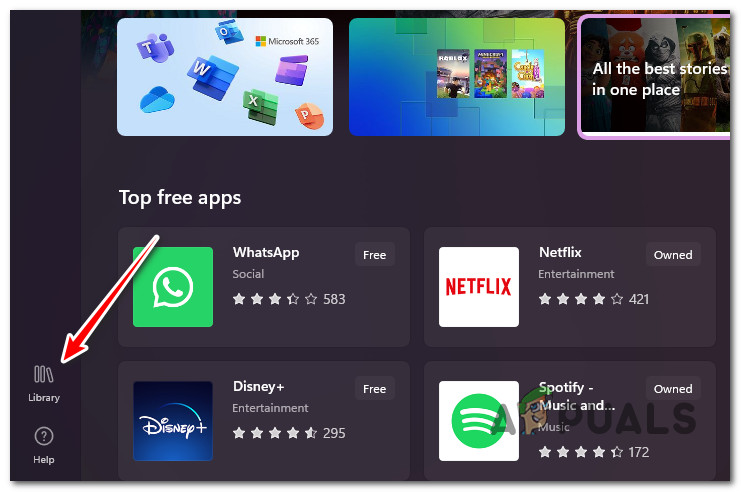
Access the Library Tab - Inside the Library tab, click on the Get Updates button in the top-right corner of the screen.
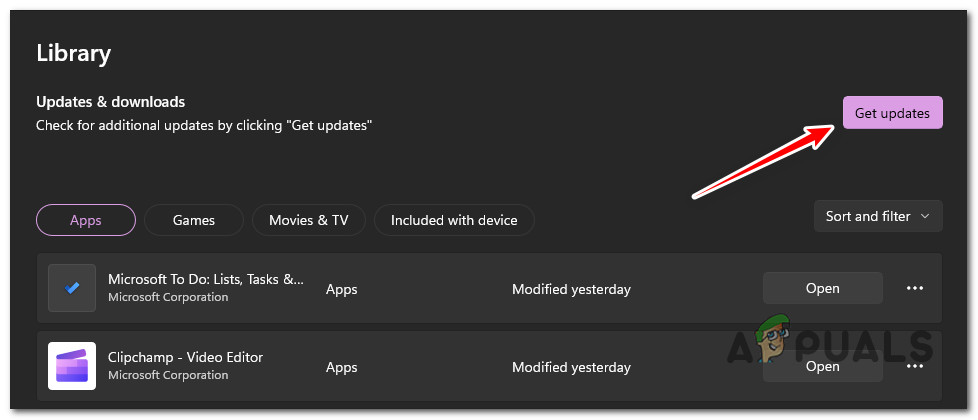
Retrieve new updates available via Microsoft Store - Once the list has been refreshed, find the Windows Web Experience pack from the list of available updates.
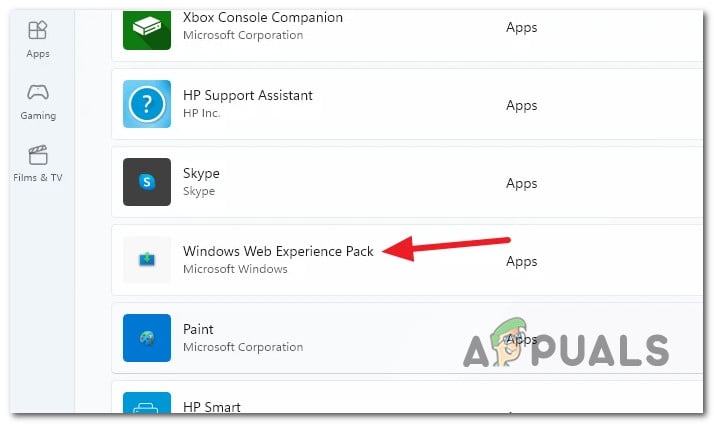
Click on the Windows Web Experience Pack listing Note: If you can’t find it, you can access the Store link manually and click on Get to download the latest version. From the prompt that just appeared, click on Open.

Open up the dedicated listing for Windows Web Experience - From the dedicated listing Windows Web Experience Pack, click on Update and wait until the app is updated.
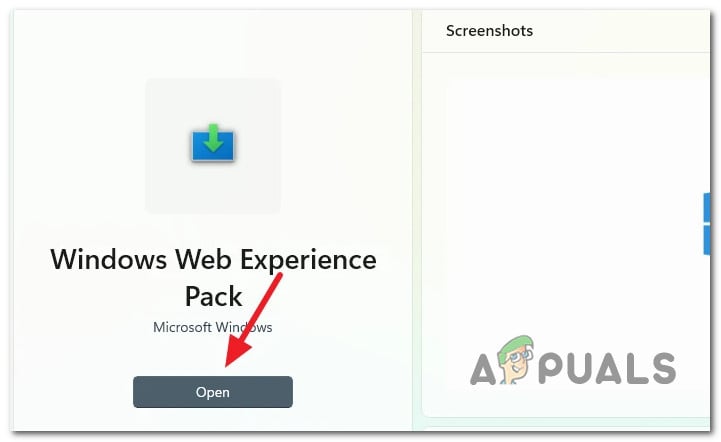
Update the Windows Web Experience Pack Note: If the Update button is missing and the listing displays Open instead, it means that your version is already the latest.





